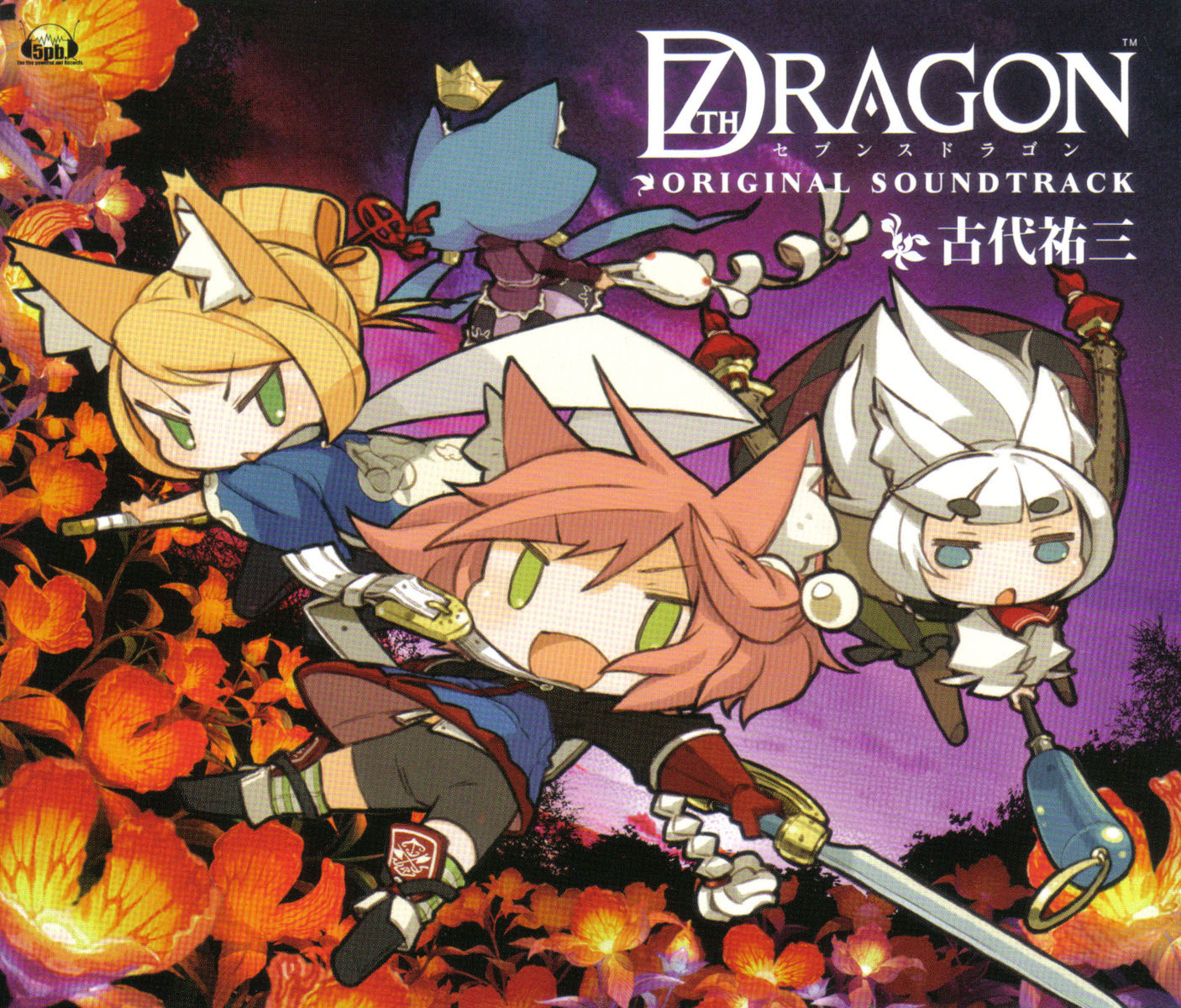Long live chiptunes, and long live Koshiro-san!
The king of old-school chiptunes, Yuzo Koshiro (Ys, Streets of Rage, Actraiser), took an extended hiatus from the game music scene after the 16-bit era. With only occasional cameos with Sega (Shenmue) or Konami (Tokimeki Memorial), Mr. Koshiro saw fit to avoid the game music world, perhaps because he did not like the direction it was heading.
This all changed when Koshiro and some of his cohorts came up with a great idea: compose original music using old-school synths (FM, PC-88, XG68k, etc), and then up-sample it appropriately to whatever platform the music would end up on. This has worked especially well for the Nintendo DS, and Koshiro has composed the soundtracks for both Etrian Odyssey (Sekaiju no MeiQ) titles for Atlus. If you buy those soundtracks, you can hear the music in two forms: its “final product” (DS) form, and its “original” (chiptune) form. This trend continues with 7th Dragon.
I want to focus this review on the latter two discs; this is the source material, where Koshiro composed the original music using FM synths. Basically, Koshiro has written a score that would function well as a soundtrack to a Famicom (NES) RPG. I couldn’t be more pleased that a soundtrack of this high quality, with such a “primitive” sound source, would exist in 2009. Thank you, thank you, Mr. Koshiro!
There are a lot of great soundtracks from the 8-bit era. One of my favorites is Nobuo Uematsu’s Final Fantasy III soundtrack. And, in my opinion, discs three and four of the 7th Dragon Original Soundtrack are capable of rivaling that classic soundtrack. It all starts with the first track of disc three, which is the opening music for the game, in FM format. I can easily imagine this as music to a top-down overworld for an RPG! It immediately makes me want to break out the old NES and play some classic RPGs!
On track 5 of that same disc, we reach the game’s first battle theme. The music sounds like this incredible blend of early Final Fantasy, Ninja Gaiden, or even a Game Boy soundtrack (SaGa, aka Final Fantasy Legend, had some similar battle themes to this one).
Then, having heard these, I go back and listen to their “DS sound” counterparts on disc one. They sound great, yes, and they certainly serve their purpose for a Nintendo DS game. In fact, the sound quality is superior when compared to many other DS soundtracks. However, in all that is gained, is something not lost when taken out of Koshiro’s original synth context? If you love chiptunes as much as I do, you’ll definitely value the third and fourth discs at least as high as the first two, if not higher.
That’s what I really like about this collection, though. Both versions of each song are great, each in their own way. Another relevant comparison for me was track 14 from discs two and four. The DS version is very soft, sustained, and consistent. The bouncy, staccato sounds of the chiptunes (I know you’re tempted to call them what Tommy Tallarico calls them, “bleeps and bloops,” but don’t go there!) make the entire soundscape completely different. But both versions are highly enjoyable!
One point I’d like to make about the DS sound version of the OST is that, compared to Etrian Odyssey, there is no question that 7th Dragon made big improvements in the sound department. In judging the compositions themselves (melody, harmony, rhythm), I’d say they’re on the same level as the Etrian Odyssey soundtracks. But the sound quality is drastically increased. It’s getting near the point where the soundtrack sounds like an early-Falcom-era “Super Arrange Version” all its own.
The only thing I want more than Koshiro’s continual usage of this compositional method is for more composers to hop on the chiptune bandwagon, just once, to try it out. I have long held to the theory that limiting a composer to a few channels of pure, electronically produced pitches forces them to focus on melody, and that explains why some of the most memorable VGM melodies were composed on the NES and Game Boy. I would like to see if, using these synths as a “tool” for composition, other composers might be able to craft melodies that they otherwise would never have thought to create.
I am extremely appreciative of this soundtrack, and I feel bad for players of 7th Dragon who might only experience the DS sound source and not here the original chippy-nostalgic goodness that this soundtrack contains. It’s certainly worth exploring; should you like what you find, perhaps it warrants a purchase!




